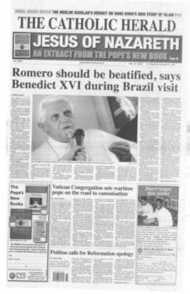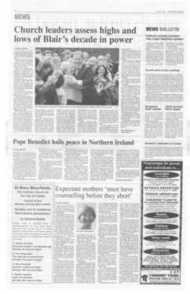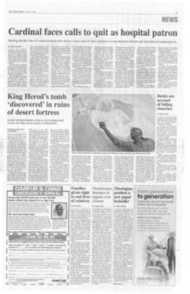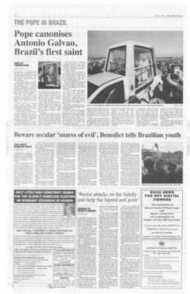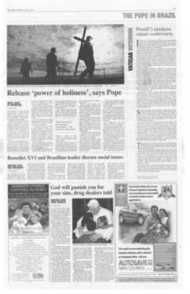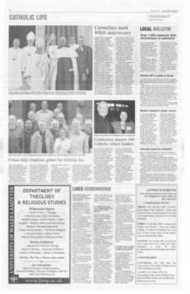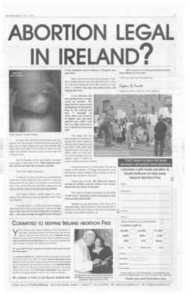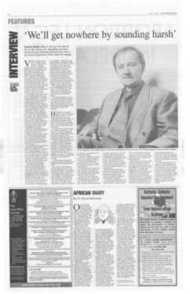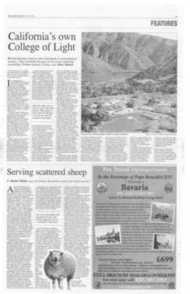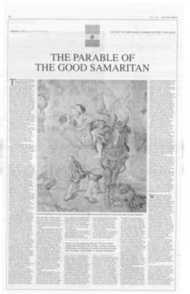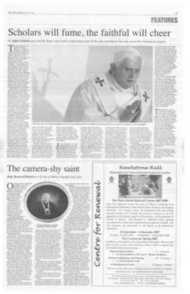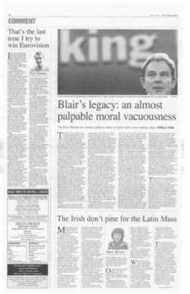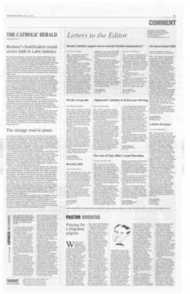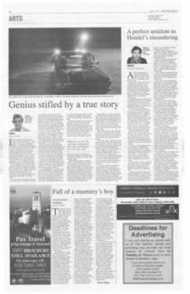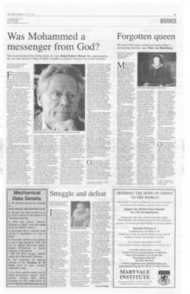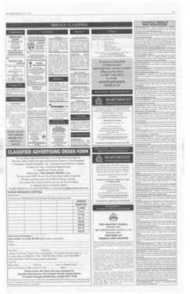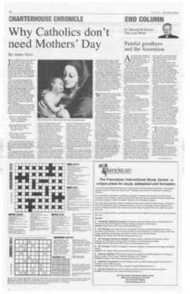Page 1, 18th May 2007
Page 1
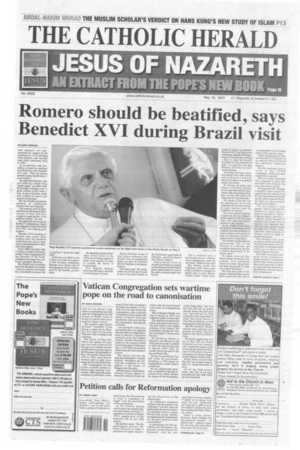
Report an error
Noticed an error on this page?If you've noticed an error in this article please click here to report it.
Tags
Share
Related articles
Pope Benedict Defends Role Of Wartime Pontiff
Blessed Damien To Be Canonised After Vatican Approves...
By Edward Pentin In Rome
A Long Way To Go
Weisenthal Centre Mounts Campaign Against Pope Pius Xii...
Vatican Congregation sets wartime pope on the road to canonisation
BY MARK GREAVES
POPE PIUS XII moved a step closer to canonisation last week after the Congregation for the Causes of Saints voted in favour of a decree that recognised his "heroic virtues".
The wartime pope will be declared "venerable" if the decree is approved by Benedict XVI and will become "Blessed" if he is credited with a miracle.
The Cause of Pius XII, which was opened 40 years ago, has been controversial because of accusations that the pontiff failed to protest against the Holocaust. But defenders of Pius, who led the Church from 1939 to 1958, insist that he worked hard to help Jews during the Second World War.
The Congregation for the Causes of Saints reached its decision after studying a sixvolume, 3,000-page document compiled by promoters of the pope's Cause. But, according to the Italian newspaper Corriere della Sera, the case divided the congregation, with a minority of members voting against the decree. A Vatican source has rejected the claim and said that the congregation voted entirely in favour.
Last month the controversy surrounding Pius was reignited after the nuncio to Israel threatened to boycott a Holocaust memorial at the Yad Vashem museum. He had objected to a caption at the museum which accused the pope of refusing to sign a 1942 Allied declaration condemning the extermination of Jews.
The caption said that the pope had maintained a "neutral position" throughout the war with the exception of two appeals to the leaders of Hungary and Slovakia.
But the nuncio, Archbishop Antonio Franco, agreed to attend the ceremony at the last minute after he found himself at the centre of an international outcry.
Pius. or Eugenio Pacelli, was born in Rome in 1876 and ordained a priest 23 years later.
He came from an aristocratic family and many of his ancestors had risen to the higher echelons of the Church. His grandfather founded the Vatican newspaper L'Osservatore Romano.
He served as nuncio to Germany and Prussia in the 1920s and was made a cardinal in 1929. He was elected pope in March 1939, only six months before the start of the Second World War.
During his pontificate Pius XII wrote 46 encyclicals, including a 1939 attack on totalitarianism called Summi pontificatus.
He also released the Apostolic constitution Munificentissimus Deus, which defined the dogma of the Assumption
of the Virgin Mary. The view that Pius XII did not protest enough during the Holocaust was put forward by John Cornwell in his book Hitler's Pope: The Secret History of Pius XII, in which he accused the pontiff of anti-Semitism.
But Mr Cornwell's scholarship has been criticised, most notably by Rabbi David G Dalin in The Myth of Hitler's Pope.
The book argued that critics of Pius XII are liberal Catholics and ex-Catholics who "exploit the tragedy of the Jewish people during the Holocaust to foster their own political agenda of forcing changes on the Catholic Church today".
Rabbi Dalin insisted that Pius XII was actually responsible for saving thousands of Jews.
Of all the 20th-century popes, only Pius X has been canonised and only John XXIII has been beatified.
blog comments powered by Disqus


